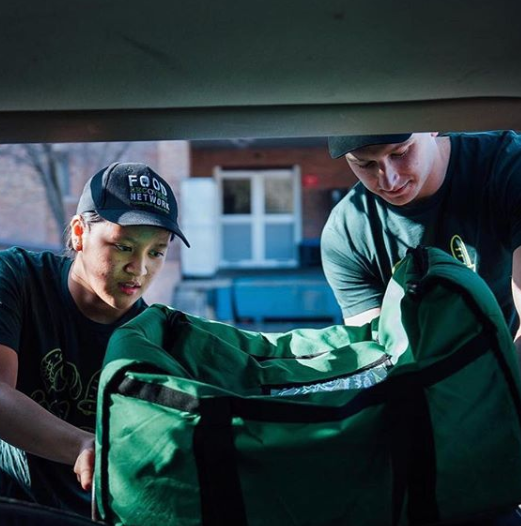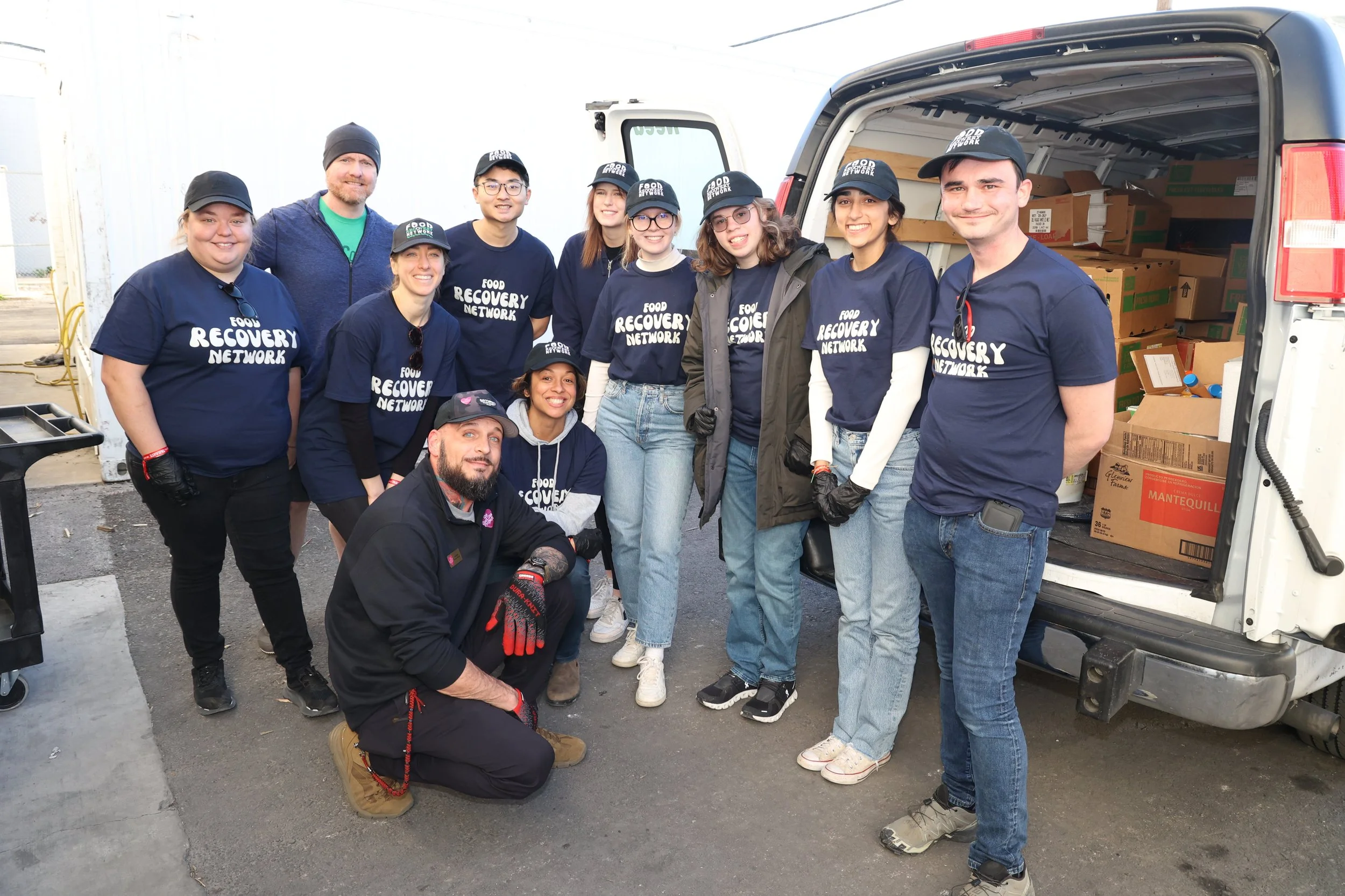Thanksgiving week is upon us, and here at Food Recovery Network we have a lot to be grateful for.
We are grateful for our 160 chapters in 39 states. These student leaders and volunteers have recovered more than 1 million pounds of surplus food from their campus communities that otherwise would have gone to waste. Thank you for your leadership and dedication.
We are grateful for our partner agencies. These community organizations across the country work hand in hand with our student leaders to make sure recovered food ends up on the plates of those who need it most. Thank you for your partnership and service.
We are grateful for our dining hall and restaurant partners. These eateries go the extra mile to donate their surplus food rather than throw it away. Thank you for your initiative and commitment.
One of FRN’s core values is reflection, so I’d like to take some time to reflect on the past four years by sharing some stories of gratitude from those involved in FRN’s journey.
From a student: “After we made our second recovery, I received a call from our contact at our partner agency. He took time out of his Saturday to call and tell me how grateful they were at Life Challenge to be receiving these donations. He said that he had told the residents that they received these donations from students at Madonna University and they were all excited to know who we were! Consistently after that, he always makes sure that we know that they use all the food and the residents are very thankful. After that moment, I knew this was all worth it! I am so glad we are participating with FRN and making this difference in our little corner of the world.” -- Katie Crombez, President of FRN at Madonna University
From a partner agency: “Food Recovery Network is remarkable not only for the array of wholesome food they donate to us, but for the spirit of the students who work with us. In the high-pressure environment of a major college (Providence College), students finding the time and the desire to serve their community is inspiring. … Their donations are invaluable in helping us to keep feeding the people who depend on us. I’m very grateful to be part of the network.” -- Larry LoVerde, Kitchen Manager at McAuley House
From a recipient of FRN food: “I so appreciate the help of PLASE during this transition and crisis. I felt part of a family in so many ways. This did indeed include the daily meals, conversations and kindness of residents and staff. I know part of the food was donated through Goucher College. It added good and new foods. I am so appreciative." -- Ms. K. G., a veteran served by Project PLASE
Finally, we are grateful for our funders and donors. Your contributions help us fulfill our mission of fighting waste, feeding people, and developing student leaders. Thank you for your support and investment.







